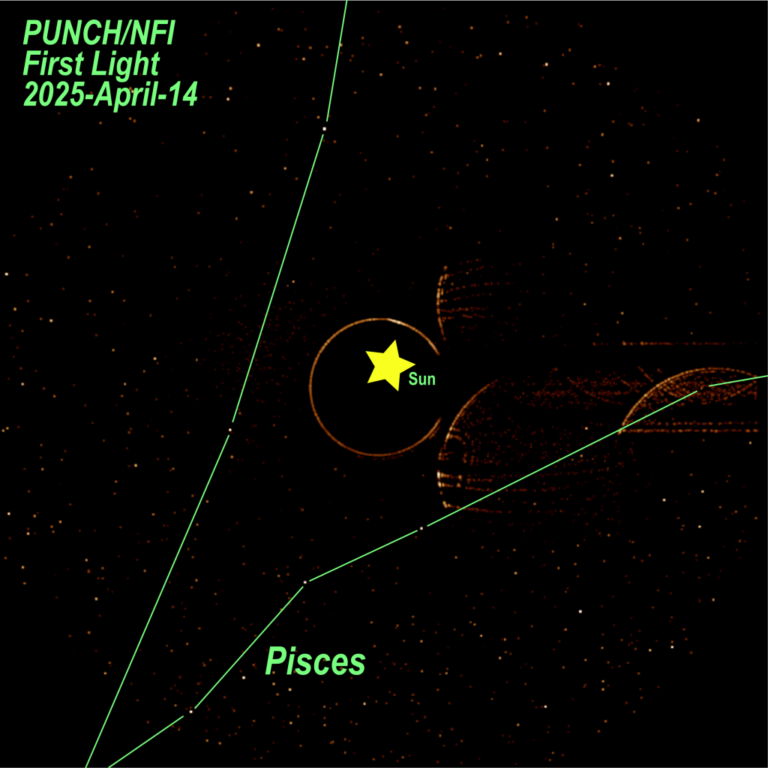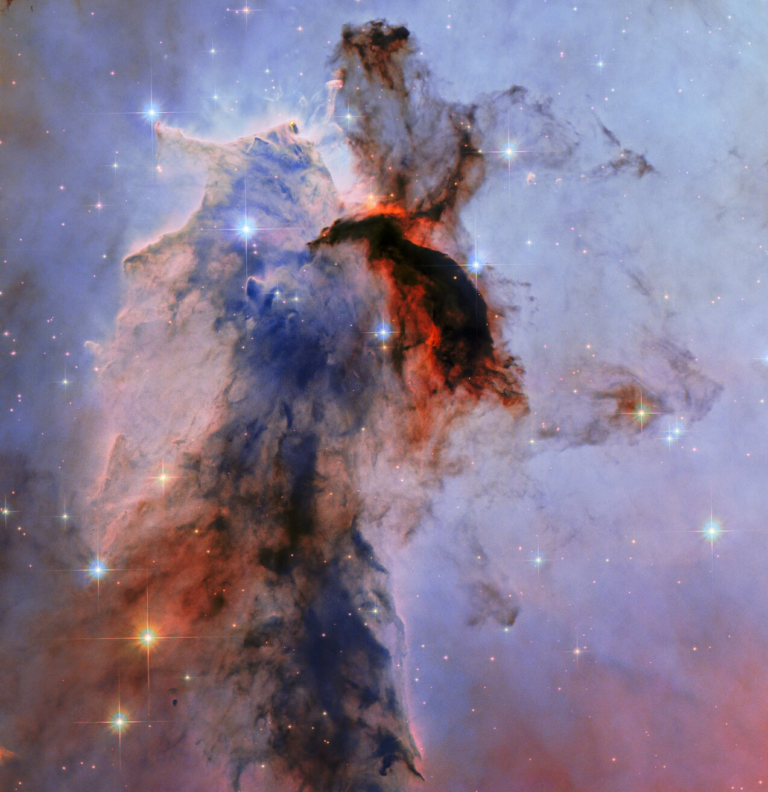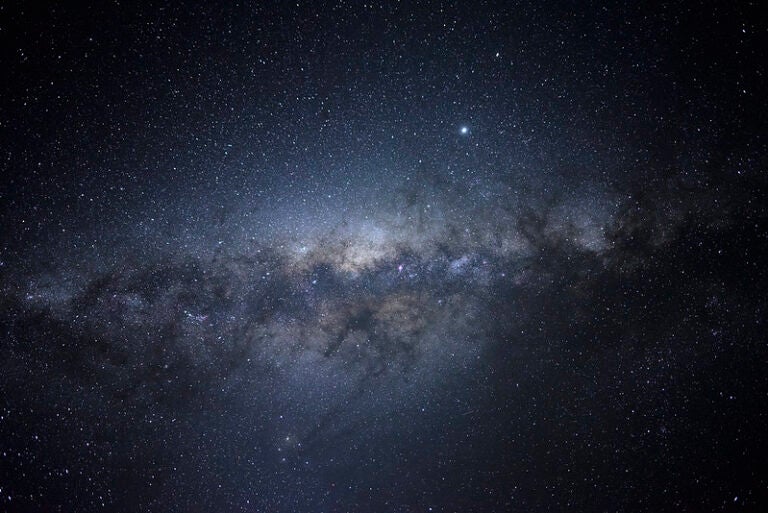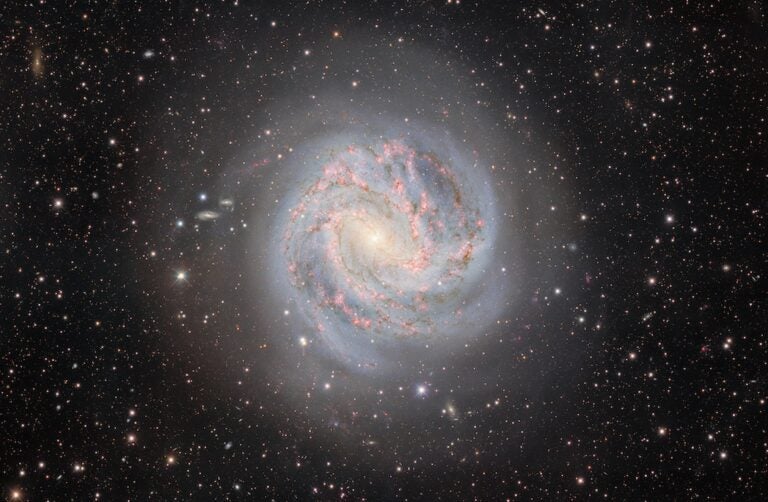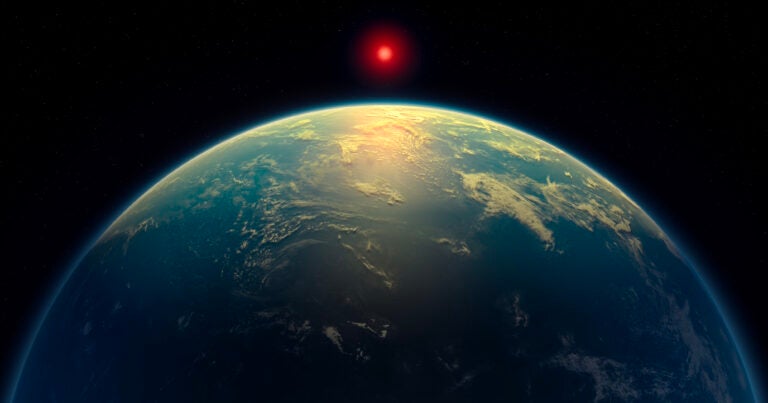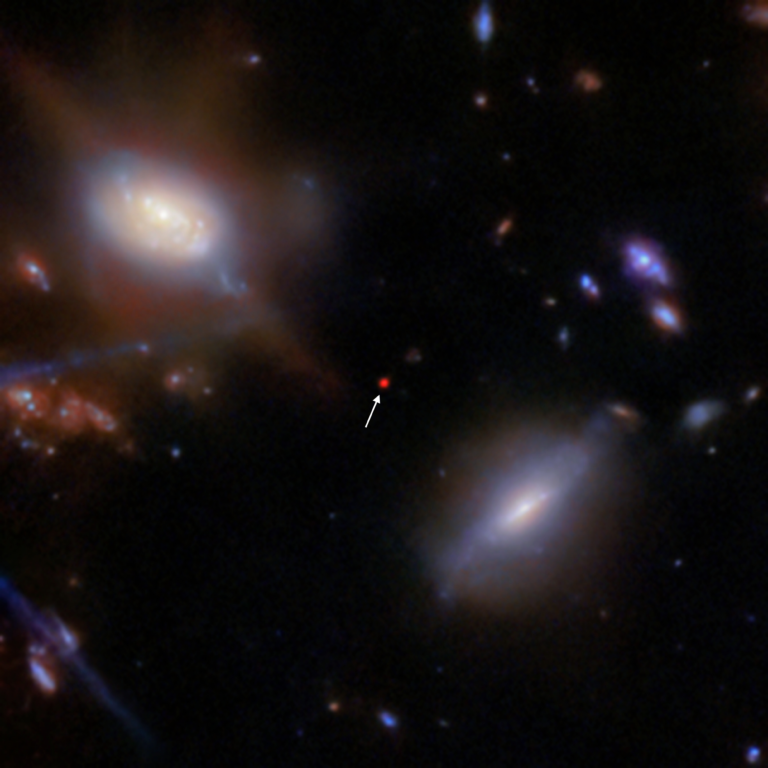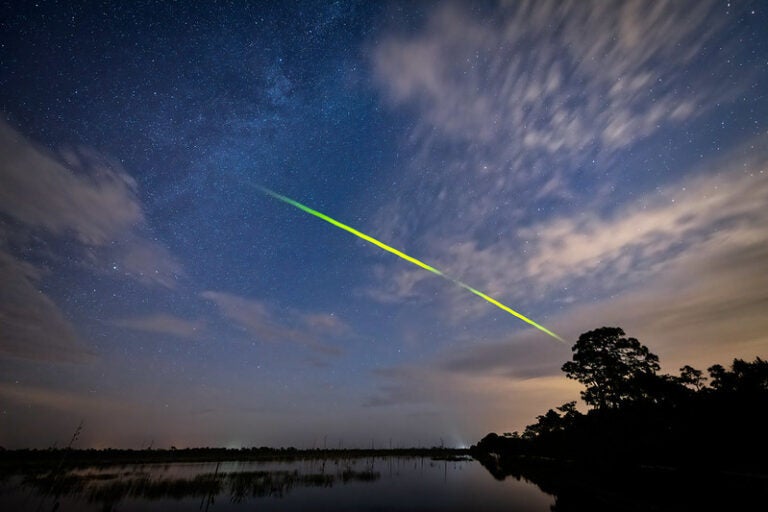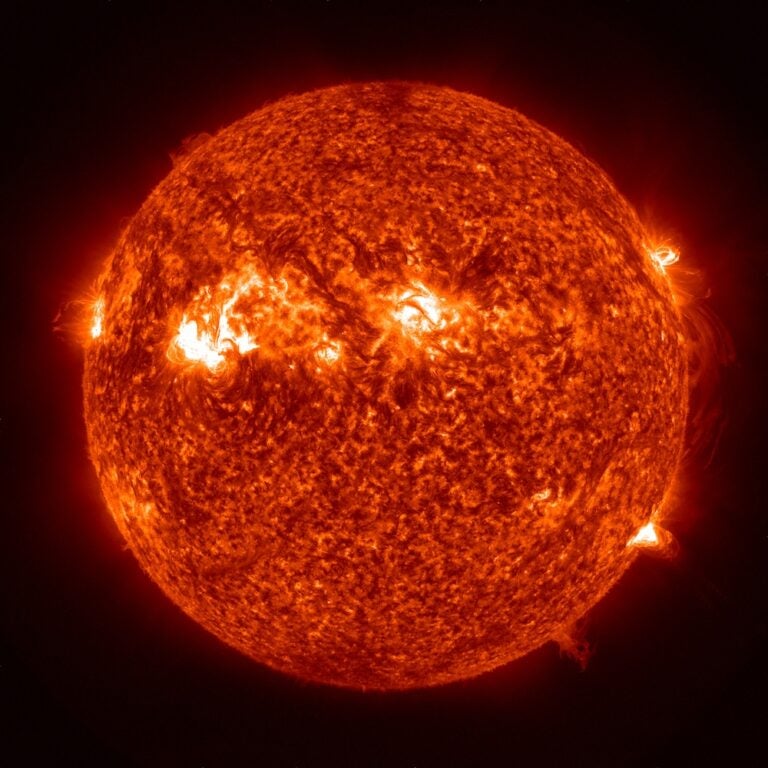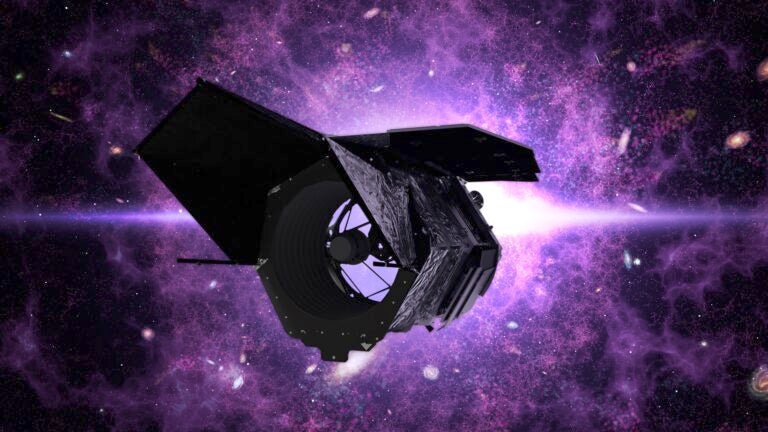New York University physicist Gia Dvali has a theory of how that might happen. It starts with string theory, which posits that we live on an infinitely-large membrane, or “brane,” adrift in higher-dimensional space. Gravitons can leak from our brane into higher dimensions, weakening gravity. She envisions this process as something akin to the way sound waves from a ringing bell propagate along its surface and leak into the surrounding air.
David Spergel and his colleagues at Princeton University propose a cosmological test to determine whether cosmic acceleration is due to dark energy or “modified gravity,” perhaps along the lines Dvali proposes. Supernova surveys provide information on the universe’s expansion, whereas weak-lensing surveys provide information on both expansion and structure growth. “If general relativity is right, both techniques should give the same answer,” says Spergel. “If we don’t get the same answer, no theory of dark energy will be consistent with the data.”
Meanwhile, a much simpler “laser-ranging” experiment called the Apache Point Observatory Lunar Laser-ranging Operation (APOLLO) is underway in New Mexico. APOLLO the observatory’s 3.5-meter telescope to measure the round-trip travel time of laser pulses bounced off reflectors on the Moon to a precision of one trillionth of a second. This, in turn, defines the Moon-telescope distance with millimeter accuracy — good enough to see, in several years, whether “leaky gravity” or some other quirk of general relativity has thrown the Moon’s orbit off-kilter.
APOLLO researcher Eric Adelberger of the University of Washington is also performing laboratory tests of how modified gravity might manifest itself on small (sub-millimeter) scales. If the laser-ranging and lab experiments show nothing, says Dvali, “We’ll be forced to think the accelerating universe is due to dark energy.” And Einstein’s theory of general relativity will have successfully withstood another challenge.
For an excellent background on dark energy, see the Resource Book on Dark Energy, a web site maintained by Lawrence Berkeley Laboratory’s Eric Linder.
Learn the latest on competing architectures for the NASA/U.S. Department of Energy Joint Dark Energy Mission by visiting the web sites for each of the three candidates: the Supernova/Acceleration Probe (SNAP); the Joint Efficient Dark Energy Investigation (JEDI); and the Dark Energy Space Telescope (DESTINY).


